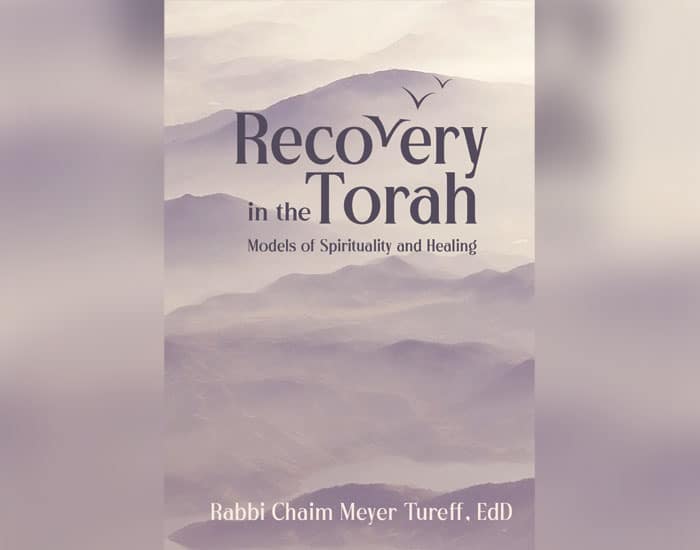
In the United States, 40 million people struggle with substance abuse disorder. The Jewish community isn’t immune to these issues; here in Los Angeles, there are rehabs like Beit T’Shuvah and Chabad Treatment Center treating Jews battling substance abuse.
In his new book, “Recovery in the Torah,” Rabbi Dr. Chaim Meyer Tureff, who has long worked with addicts, details how each Torah portion and holiday can give us insights on substance abuse and help us on the road to recovery.
The opening chapter, which covers Bereishit, discusses the Torah verse, “It is not good that man should be alone; I will make him a helper opposite him.”

Tureff equates this to addicts finding a sponsor who can help them. “It is difficult enough for man to navigate these challenges, but with a partner whom one can trust, he has someone with whom he can work. This is the same in the world of recovery and rehab. One is not asked to try to become sober on his own. It is a difficult task to go through recovery by yourself. That is why it is important—and some say imperative—to have a sponsor as you are starting on the road of recovery.”
The rabbi is rav beit sefer at Pressman Academy, director of an organization called STARS, which helps individuals struggling with addiction, as well as the spiritual guide for Soberman’s Estate, an addiction residential men’s treatment center in Arizona. He’s spent 19 years working with addicts and lecturing on the topic of substance abuse at rehab centers, synagogues and schools. He’s also worked with people from all different backgrounds, including many Jews.
“It hits Jews disproportionately because of our mentality which includes shame, trauma, constant self-criticism and unrealistic expectations.”
“[Addiction] is a big problem in our entire society,” Tureff told the Journal. “It hits Jews disproportionately because of our mentality which includes shame, trauma, constant self-criticism and unrealistic expectations.”
There are times when Jewish ritual calls for drinking wine, such as Shabbat, the holidays and simchas. Tureff writes that on Purim, drinking plays a major role, with the obligation to drink until you can’t tell the difference between Haman and Mordechai. As a former member of Hatzalah, a Jewish volunteer emergency medical service organization, he has seen drinking on Purim cause serious issues – and even death.
“As a midrash from Leviticus Rabbah states about drinking, ‘The negative effect of wine is like a snakebite, separating life and death,’” the rabbi writes. “We know the dangers of drinking on Purim and many synagogues take precautions so that young people are not influenced by excessive drinking and adults don’t make decisions that have unintended consequences.”
In the chapter on Pesach, Tureff relates Pharaoh’s contending with the 10 plagues with hitting rock bottom and feeling the consequences of it. “Much like someone in active addiction, each plague brought new hardships,” he writes. “His willfulness led to suffering, the downfall of Egypt, the death of his family, and, according to many interpretations of the story, his own death in a painful and tormented manner. When one is active in his addiction, he often refuses to see the signs or plagues that impact his life.”
When individuals who are struggling with addiction read his book, Tureff hopes they learn about healthier ways to address their issues.
“There are alternatives to going down a path that will actually make life more difficult,” he said. “I think there is a lot about everyday crutches, an example being social media and how people fall into these things to avoid dealing with feelings or issues at the present moment. It is so much easier to play on your phone rather than deal with real life.”
Tureff believes that the Torah can be valuable when it comes to addiction treatment – but you have to know how to decipher the messages.
“It is a powerful spiritual tool, with guidance and wisdom to deal with these issues, although it is not always explicit,” he said.
Though it may be tempting to jump to conclusions or judge a person who is dealing with substance abuse, Tureff stresses that importance of having empathy and seeing the godly spark inside of them.
“There should not be any stigma with those that are struggling with addiction or know someone who is struggling,” he said. “We all have a special soul that God put in us for a reason. Everyone should remember that.”























 More news and opinions than at a Shabbat dinner, right in your inbox.
More news and opinions than at a Shabbat dinner, right in your inbox.